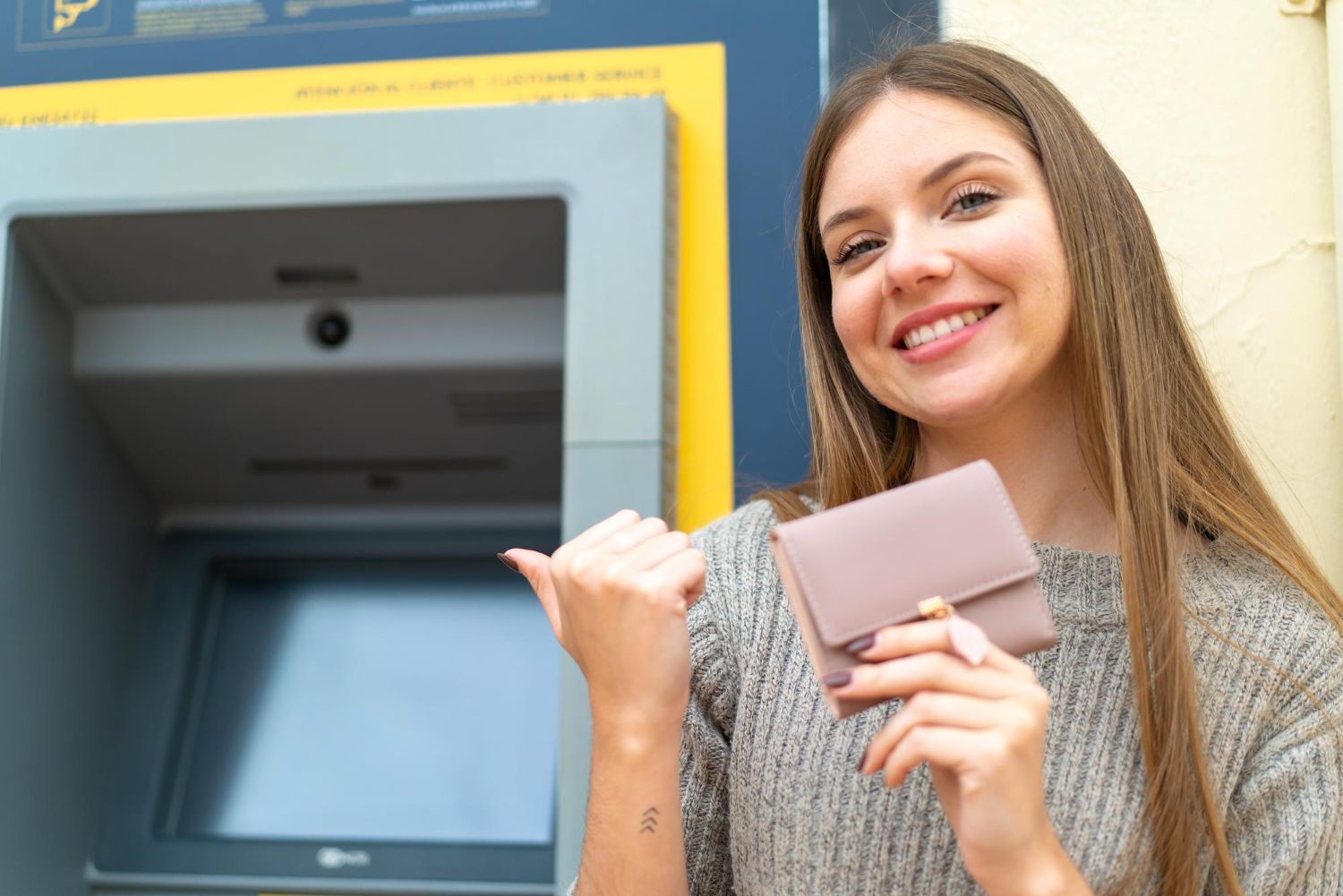As a new immigrant, opening a bank account in the UK might seem like a big task, but trust me, it’s not as complicated as it looks. I know it can initially feel overwhelming, but don’t worry—I’ve got you covered. In this guide, I’ll show you the simple steps, share valuable tips, and tell you precisely what you need to start quickly. This way, you can manage your finances efficiently and focus on settling into your new life.
Having a UK bank account is essential for your daily activities, whether you’re getting paid, paying bills, or saving money. It’s one of the first things you’ll need to do when moving to the UK, and I want to make sure you’re ready to open one without any hassle. Let’s get you started!
Read: 7 Secrets to Acing Your UK Work Visa Interview
The Importance of Opening a UK Bank Account as an Immigrant
Opening a UK bank account is one of the first steps to settling into your new life in the UK. A bank account helps you manage your money and opens the door to a range of financial services that make life easier. Here’s why it’s so crucial for immigrants:

- Managing Your Finances: A bank account allows you to receive your salary, pay bills, and save money securely. It also simplifies handling everyday expenses.
- Convenient Payments: Most employers pay through direct deposit, and having a bank account allows you to set up automatic payments for rent, utilities, and phone bills.
- Building Credit: Having a UK bank account helps you build a credit history, which is vital for getting loans, credit cards, or even renting an apartment in the future.
- Ease of Access: A UK bank account provides access to online banking, making it easier to transfer money, track your spending, and manage your finances 24/7.
Common Challenges Immigrants Face When Opening a UK Bank Account
New immigrants often face obstacles when trying to open a UK bank account. These challenges can feel overwhelming, but knowing what to expect can help you prepare:
- Proof of Identity: You must provide evidence of who you are. This can include your passport, a biometric residence permit (BRP), or a national ID card. Without these, it may be harder to open an account.
- Address Verification: Banks usually ask for proof of your UK address. This can be tricky if you’ve just arrived and haven’t yet secured permanent housing. Utility bills, rental agreements, or a letter from your employer can help.
- Lack of UK Credit History: Immigrants often don’t have a credit history in the UK, which some banks require. This can make it harder to open an account, but some banks cater specifically to newcomers.
- Language Barriers: The banking process may be complex if you’re not fluent in English. Many banks now offer services in multiple languages, but it’s good to check beforehand.
Read: UK Entrepreneur Visa vs Innovator Visa: Which is Better for Startups?
Step-by-Step Guide to Opening a Bank Account in the UK
Opening a bank account in the UK is a straightforward process when you know what to do. Here’s a step-by-step guide:
1. Choose the Right Type of Bank Account
- Current Accounts: These are the most common accounts used for day-to-day transactions like paying bills, receiving salary, and making transfers.
- Savings Accounts: If you want to save money with interest, consider opening a savings account.
- Student Accounts: If you’re a student, many banks offer accounts with special perks like interest-free overdrafts and discounts.
2. Gather the Required Documents
You will need these documents to open your account:
- Proof of Identity: Passport, national ID, or biometric residence permit.
- Proof of Address: Utility bill, rental agreement, or letter from your employer.
- Immigration Status: If applicable, bring proof of your right to reside in the UK, like a visa or BRP.
3. Choose a Bank
- High Street Banks: Popular banks like Barclays, Lloyds, HSBC, and NatWest have branches throughout the UK. These banks are reliable and offer a range of services.
- Online Banks: Digital-first banks like Monzo, Revolut, and Starling offer easy account opening with minimal paperwork. These accounts are fully managed online or through mobile apps.
- Challenger Banks: Newer banks that provide modern banking services focusing on customer experience.
4. Apply for Your Bank Account
You can apply:
- In-Branch: Visit a bank branch with your documents and complete the application in person.
- Online or App-Based: Digital banks let you apply through their websites or apps. It’s often faster and more convenient.
- Video Call Verification: Some banks may offer a video call option to verify your identity.
5. Wait for Approval
- After applying, it may take a few days for the bank to process your application. Some banks issue temporary accounts, so you can start using your account while waiting for full approval.
Alternative Ways to Open a UK Bank Account
If you’re facing difficulties opening a traditional bank account, there are a few alternatives:
- Digital Bank: Digital-only banks like Monzo, Revolut, and Starling have simpler processes and are ideal for those with less documentation. They offer a quick setup with online verification and fewer requirements.
- International Banks: If you already have an account with a bank that operates in your home country and the UK, check if they offer services to help you open a UK account.
- Prepaid Cards: If opening a bank account takes time, prepaid cards are an excellent temporary option. You can load money onto them like a regular debit card.
Tips to Make the Process Easier for New Immigrants
Opening a bank account in the UK can feel overwhelming, but with these tips, you can make the process easier:

- Be Prepared with Documents: Ensure you have all the necessary documents, like proof of identity (passport or national ID), proof of address (utility bill, rental agreement), and your immigration status (visa or residence permit). Having everything ready will speed up the process.
- Consider Banks That Specialize in Immigrants: Some banks cater specifically to newcomers, offering services and support tailored to their unique situation. These banks often understand the hurdles immigrants face and may even offer special packages with lower fees.
- Look for Multilingual Support: If English isn’t your first language, find banks that provide multilingual support. Some banks have staff or online services in multiple languages, making it easier for you to communicate and understand the process.
- Compare Bank Fees and Services: Not all banks offer the same services, so compare options. Check the fees for account maintenance, international transfers, and ATM usage. Some banks may offer free banking for a limited time or lower costs for newcomers.
- Check for Digital or Online Banking Options: If you prefer managing your money digitally, look for banks that offer easy-to-use mobile apps or online banking services. These can save you time and allow you to manage your account anywhere.
- Seek Recommendations: Ask friends, family, or others in the immigrant community about their banking experiences. Getting advice from people who’ve already gone through the process can help you make informed choices.
Read: UK Entrepreneur Visa vs Innovator Visa: Which is Better for Startups?
What to Expect After Opening Your Bank Account
Once your bank account is open, here’s what you can expect:
Debit Card and Online Banking
After you open your account, you’ll receive your debit card by mail. Follow the instructions to activate it, usually by using your PIN at an ATM. You can also set up online banking to manage your finances quickly, check balances, pay bills, and transfer money through mobile apps or your computer.
Setting Up Direct Debits and Standing Orders
You’ll likely need to set up recurring payments like rent, utility bills, or subscriptions. Use Direct Debits for payments that may vary (like bills) or Standing Orders for fixed amounts (like rent). This will save you time and ensure you never miss a payment.
Access to Additional Services
Once you have your account, you may be eligible for other services, like a personal loan, credit cards, or savings accounts. Some banks may also offer overdraft protection, so understand all the terms and conditions before using this feature.
Common Mistakes to Avoid When Opening a UK Bank Account
Here are some mistakes to avoid during the account setup process:
- Not Checking for Fees: Not all accounts are free. Some charge monthly fees or fees for certain transactions like international transfers or ATM withdrawals outside the bank’s network. Be sure to check the fees before you commit to an account.
- Not Updating Your Address: If you move, make sure to update your address with the bank. Failing to do so can lead to missed mail, including essential documents or account updates.
- Assuming All Banks Are the Same: Banks offer different services, fees, and features. Carefully compare them to find one that fits your needs, whether you’re looking for low fees, good online banking, or additional services like loans or savings plans.
- Ignoring Security Features: Enable security features like two-factor authentication for online banking. This will help keep your account safe from unauthorized access.
Opening a bank account in the UK is an essential step in managing your finances. It simplifies payments and savings and ensures you have access to financial products. Following the tips will make the process smoother by avoiding common mistakes.
Now that you understand the process, take the first step. Gather the required documents, compare banks, and choose the one that suits your needs. Opening a bank account is your first step to financial security in the UK, so don’t wait—start today!


